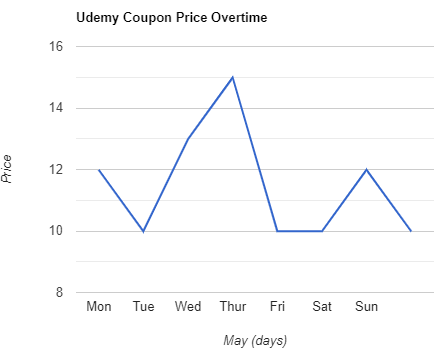The Data Scientist's Toolbox
This Coursera course was created by Johns Hopkins University. It introduces tools and resources that are essential to working in data science, and it splits lessons into a theoretical and practical half.
Created by: Jeff Leek
Produced in 2019
 What you will learn
What you will learn
- The fundamentals of data science.
- R and RStudio.
- Version control and GitHub.
- Scientific Thinking, R Markdown and Big Data.
 Quality Score
Quality Score
Overall Score : 100 / 100
 Live Chat with CourseDuck's Co-Founder for Help
Live Chat with CourseDuck's Co-Founder for Help
 Course Description
Course Description
 data science Awards Best Coursera Course
data science Awards Best Coursera Course
 Pros
Pros
 Cons
Cons
-
- Course takes a light introduction on a broad range of topics that all apply to data science. Great preparation for a full-dive, multicourse adventure into data science.
- Covers mindset of data science in a way most courses skip.
- Course ensures that you have the tools to take on a journey to truly master data science.
-
- Course covers a substantial range of data science tools. Accessing all of them can potentially add a hefty price tag to completing the course.
- Course is not a Capstone project. It is intended to prepare for a data science Capstone project.
- Course teaches very little data science itself. It is more like going over the syllabus and prerequisites before diving into real learning.
 Instructor Details
Instructor Details

- 5.0 Rating
 148 Reviews
148 Reviews
Jeff Leek
Jeff Leek is an Assistant Professor of statistics at the Johns Hopkins Bloomberg School of Public Health and co-editor of the Simply Statistics Blog. He received his Ph.D. in statistics from the University of Washington and is recognized for his contributions to genomic data analysis and statistical methods for personalized medicine. His data analyses have helped us understand the molecular mechanisms behind brain development, stem cell self-renewal, and the immune response to major blunt force trauma. His work has appeared in the top scientific and medical journals Nature, Proceedings of the National Academy of Sciences, Genome logy, and PLoS Medicine. He created Data Analysis as a component of the year-long statistical methods core sequence for statistics students at Johns Hopkins. The course has won a teaching excellence award, voted on by the students at Johns Hopkins, every year Dr. Leek has taught the course.
 Students also recommend
Students also recommend

-
Python A-Z: Python For Data Science With Real Exercises! (2022)
-
4.4 (150 Reviews)
-
 Provider: Udemy
Provider: Udemy Time: 11h
Time: 11h
$10.44






